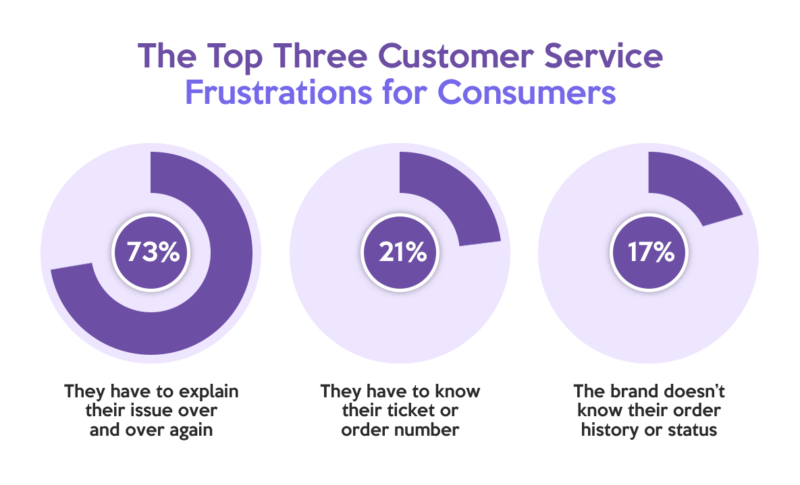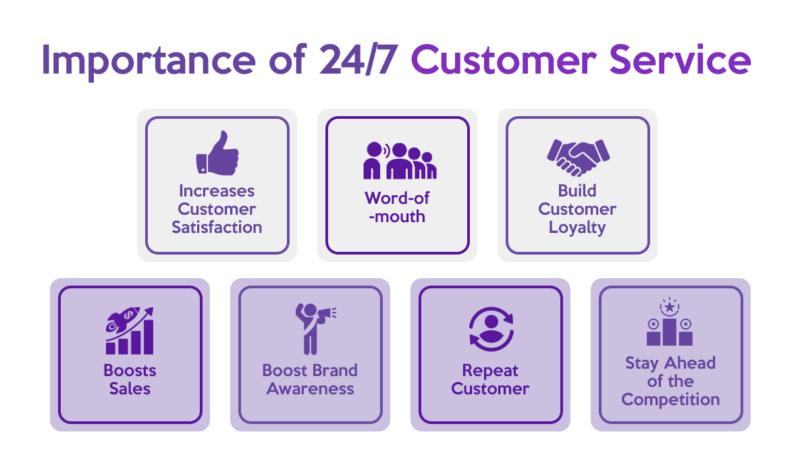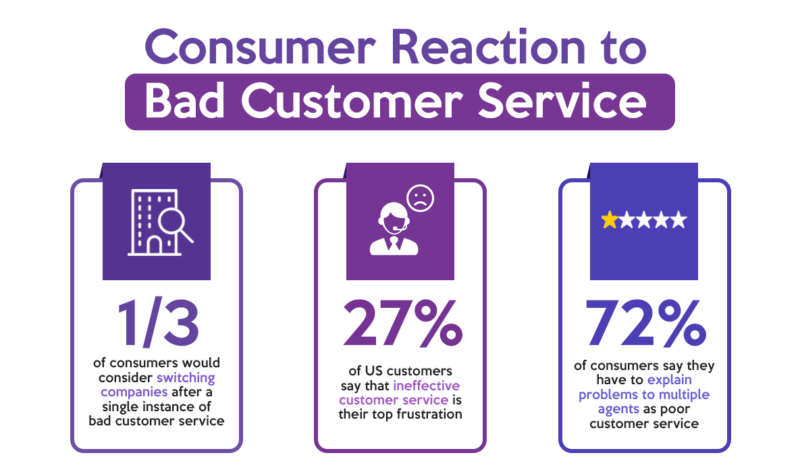Providing an excellent customer experience entails more than delivering products and services to customers promptly and efficiently. Customer experience involves every interaction a customer has with a company at every stage of the customer journey. Each interaction between customers and businesses improves or damages the relationship, whether exposure to an advertisement, paying a bill, or a call to the contact center.
Call center performance has become a critical focus as businesses increasingly compete based on customer experience. With rising consumer needs and expectations, organizations continually look for new ways to improve their call center operations. Collaboration with a business process outsourcing (BPO) for customer service operations is one method that has gained popularity.
Call center outsourcing services provide various benefits that can revolutionize your business and elevate your customer service experience. This article explores several reasons it can be a game-changer for your company. Let’s delve into the details and see why a BPO for your call center can help you achieve remarkable results.
1. BPOs Offer Cost Savings
Companies spend an estimated $230 billion on business process management worldwide. These span from customer-service functions like call centers to back-office processing in applications such as claims, payments, finance, and procurement.
Keeping an in-house customer service department requires much work. There’s a continuous process of recruiting, hiring, and training. Start-ups and small businesses often have limited resources, and employing and training a dedicated customer service team can be costly. Many companies are partnering with a BPO for their call center operations to take advantage of the cheaper labor costs in offshore and nearshore locations. This saves them significantly on employee salaries, benefits, and training expenses.
Setting up an in-house team of call center agents also requires a significant investment in infrastructure, such as office space, furniture, computers, telephony systems, and network infrastructure. Businesses might save these capital expenditures through a BPO. BPO providers have the essential infrastructure, saving companies money on equipment and maintenance.
BPO allows businesses to pay only for their needed services rather than the fixed costs of maintaining an in-house call center. The pricing model can depend on call volume, operating hours, or performance metrics. Because of this scalability, businesses can only pay for their services, resulting in cost savings during low call volume periods.
2. Outsourcing Provides Access to Expert Support

Domain expertise is an obvious asset for any call center’s workforce. Every customer you meet will have a distinct perspective, which means they will have specific needs and will most likely use different features of your product or service. Ensuring agents are well-versed about the company’s products and services and typical complaints and solutions may significantly impact the customer’s support experience.
Businesses can tap into a pool of experts by outsourcing call center operations. BPO service providers often have access to a vast talent pool specializing in customer service, sales, technical support, and other areas. Call center BPOs engage in extensive training to provide their agents with the knowledge and skills they need to deliver expert service. They undergo training in product knowledge, customer service techniques, effective communication, problem-solving, and conflict resolution. This training guarantees that agents are competent to handle customer concerns effectively.
Additionally, BPOs often have subject matter experts (SMEs) in their workforce. These experts have in-depth knowledge of specific industries, products, or services. When a customer inquiry requires particular knowledge, SMEs can provide accurate and detailed information, ensuring that consumers receive expert-level help.
3. Call Center Agencies Provide 24/7 Customer Support
One potential challenge for businesses operating in a global marketplace is the different time zones of their customers. While this may not affect some areas of the business operations, it can cause issues with customer service.
Hundreds of well-known companies provide 24-hour customer support to meet the needs of their customers. It can reduce initial response and average resolution times, essential metrics in a customer experience strategy. In a survey conducted by Hubspot on customer support, 90% of consumers rate an “immediate” response as important or very important when they have a customer service question. Customers who receive prompt support are less likely to abandon a product or service or make a chargeback claim in the worst-case situation.
BPO call centers are usually located in different regions to provide 24-hour customer support, allowing businesses to assist customers in multiple time zones. This round-the-clock availability means customers can get help when needed, regardless of location or time. It improves customer satisfaction, response times and can even improve customer loyalty.
Although it can depend on a business’s industry, customers often prefer someone consistently available to support them whenever they have an issue with the product or service they purchased.

4. They Have Advanced Technology
Technology is essential in today’s customer service. Its primary role is to empower customer service agents to handle customer concerns and issues quickly and efficiently. As more businesses go online, so does the ability to use technology to improve customer service. Technology can reduce costs, deliver faster communication, and improve customer outcomes when used appropriately.
Call center BPOs frequently invest in state-of-the-art technologies and systems to maximize their operations. Companies with access to these modern technologies can streamline their customer service processes, automate repetitive tasks, and enhance productivity. BPO companies also use customer relationship management (CRM) systems to manage customer information and interactions. Companies gain insights into customer behavior, preferences, and purchasing patterns through this. This data enables businesses to personalize interactions, anticipate customer needs, and offer customized solutions, ultimately increasing customer satisfaction and loyalty.
BPOs are frequently at the forefront of technological innovations and industry best practices. Businesses can benefit from continuous innovation by partnering with a BPO and gaining access to their tools. By staying updated with the latest technologies, companies can remain competitive and provide improved customer experiences.
5. BPOs Offers Scalability
One critical facet of business that will directly impact the capacity to meet business objectives like revenue and growth consistently is the company’s ability to scale. Scalability enables a company to expand and generate revenue without being constrained by its structure or lack of resources. As a company’s sales volume grows, it can keep or improve its efficiency.
BPOs are built to be adaptable and scalable, allowing organizations to adapt their call center operations to shifting demands. Whether there are seasonal swings in call volumes or the business needs temporary staff for specific campaigns, a BPO can swiftly increase or decrease the number of contact center agents to match the business needs. This scalability ensures the business has the right resources at the right moment without requiring long-term commitments or significant infrastructure investments.
6. Outsourcing Reduces Stress on In-house Employees
Employees from all industries experience stress at some time in their careers. On the other hand, call center agents may have to deal with a little more because they must deal with irate customers while maintaining good service. They frequently experience stress from the company’s and customers’ conflicting demands. Managing an in-house call center can overwhelm companies, often increasing employee stress.
One of the primary benefits of outsourcing call center services is the opportunity to unload time-consuming and repetitive tasks. Answering customer inquiries, providing technical help, and processing orders can be mentally taxing for in-house employees. By delegating these tasks to a call center BPO, the strain is eased on internal personnel, allowing them to focus on more strategic and value-added activities.
BPO agents are professionals trained in handling different customer interactions and challenges. Companies can rely on their knowledge, skills, and experience to reduce the stress of complex or difficult customer interactions.
7. BPOs Help Enhance Customer Retention
Here are some notable stats on customer loyalty:
- The probability of selling to an existing customer is 60-70%, while the probability of selling to a new prospect is only 5% to 20%.
- PwC Customer Loyalty Survey 2022 revealed that more than half (55%) of respondents said they would stop buying from a company that they otherwise liked after several bad experiences, and 8% said they would stop after just one bad experience.
- In many industries, the average customer retention rate of the top five companies stands at around 94%.
- In terms of factors that impact customer retention, 89% of companies admit excellent customer service is critical.
- 70% of consumers say that friendly customer support, convenience, and speed are the three most important factors that contribute to their loyalty toward a business.
Customer retention evaluates how successful a business is at acquiring new customers and how good it is at satisfying existing customers. The statistics above show that retaining customers is easier and more cost-effective than acquiring new ones.
Outsourced call center companies can implement personalized customer care strategies to cater to each customer’s specific needs and preferences. Personalization helps customers feel valued and important, fostering better relationships and increasing the likelihood of loyalty to the business.
Customer retention is also impacted by resolving customer complaints effectively and efficiently. Outsourced call center agents are trained professionals who can handle customer inquiries and complaints quickly. They can help improve customer loyalty by offering prompt and satisfactory solutions.
8. BPOs Focus on Customer Satisfaction

The customer satisfaction rate is one of the most important call center Key Performance Indicators (KPIs). If it is high, it indicates that your customers are pleased with your service. Customer satisfaction considers several aspects of customer experience, such as:
- The availability of the products or services
- The purchasing process
- The steps after purchase
- The responsiveness of customer support when resolving issues
Customer satisfaction is critical in shaping a company’s brand reputation. Positive customer experiences lead to a positive perception of the company. Poor customer service experiences, on the other side, can damage a company’s reputation and lead to negative word-of-mouth.
BPO call centers prioritize customer satisfaction (CSAT) as a key performance indicator. They recognize the significance of creating excellent customer experiences and collaborate closely with clients to align service goals and objectives. BPOs frequently perform customer satisfaction surveys and feedback analyses to get insights and continuously enhance service quality. They help gain a competitive advantage, attract new customers, and differentiate the business based on the level of customer experience provided.
9. BPO Improves Service Quality
BPO call center agents frequently have vast customer service experience. They have implemented processes, quality assurance measures, and performance KPIs to ensure consistent, high-quality service delivery. They use rigorous training programs to improve their agents’ communication skills, product knowledge, problem-solving skills, and customer service etiquette.
Most BPO call centers also have robust quality assurance processes to monitor and assess agent performance. They evaluate call recordings regularly, conduct quality checks, and provide feedback to agents to help them improve. BPO companies invest in performance monitoring systems and customer feedback channels to consistently improve service quality. These strategies help to significantly improve service quality, enhance customer satisfaction, and drive business growth.
10. Quick Implementation
Setting up an in-house call center takes significant time, effort, and money. Partnering with a BPO call center, on the other hand, enables faster implementation and go-to-market strategies, allowing businesses to focus on their core business objectives sooner. Outsourced call centers already have the essential technology infrastructure and systems, reducing the time needed to set up an in-house call center. They can immediately deploy agents and set up communication channels, such as phone lines and email assistance, allowing businesses to begin delivering customer service with minimal delay.
Opting for a BPO solution for your call center operations can transform your business in several ways. By leveraging their expertise, technology, scalability, and cost-efficiency, you can establish an effective customer service infrastructure in a short period. The BPO provider’s expertise ensures that customers receive high-quality support services anytime. Their existing infrastructure and systems enable faster deployment, removing the need for time-consuming setup procedures.
Ultimately, call center BPOs would allow businesses to focus on their core business activities while providing exceptional customer support. Businesses can quickly adapt to customer needs, enhance customer satisfaction, and support long-term growth by harnessing the BPO’s resources and expertise.



Leave A Comment
You must be logged in to post a comment.